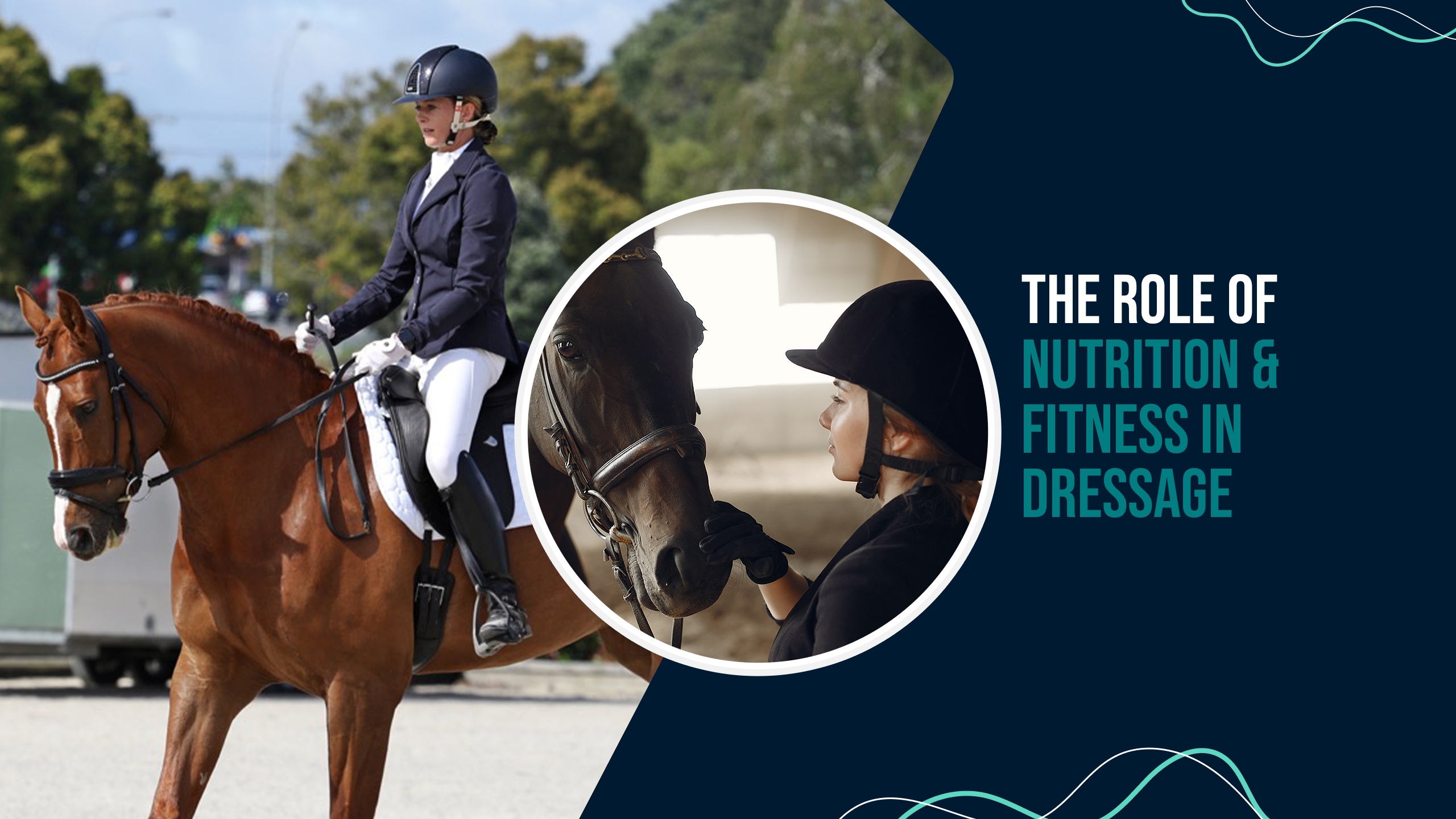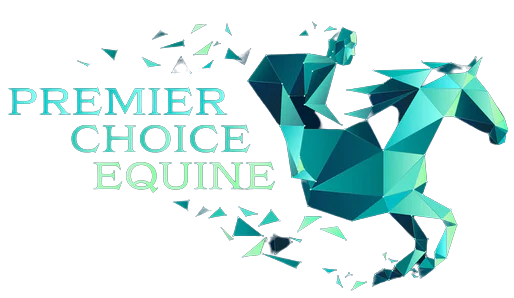
By understanding the physical demands inherent to dressage equestrian and adopting tailored strategies, riders can harness the full potential of their partnership with their equine counterparts, propelling them toward excellence in this captivating sport.
This blog delves into the indispensable aspects that underpin peak performance in this refined equestrian discipline. From executing intricate movements with finesse to maintaining harmony in the saddle, dressage demands a rigorous blend of athleticism and grace. Explore how prioritizing nutrition and fitness can elevate a rider's prowess, unlocking new levels of achievement in the arena.
The Importance of Nutrition for Dressage Riders
Nutrition plays a pivotal role in supporting the physical and mental wellbeing of dressage riders. A well-balanced diet provides the necessary fuel to meet the energy demands of training and competition. Key macronutrients such as carbohydrates, proteins, and fats are essential for optimal performance. Carbohydrates serve as the main energy source, while proteins support muscle repair and facilitate recovery processes. Fats, on the other hand, help with hormone production and provide a concentrated source of energy.
In addition to macronutrients, dressage riders should also focus on consuming a variety of micronutrients, including vitamins and minerals. These micronutrients support various bodily functions and contribute to overall health and performance. Vitamin B complex, for example, is important for energy metabolism and nerve function. Muscle contraction and relaxation rely heavily on the essential presence of calcium and magnesium. By ensuring an adequate intake of these essential nutrients, dressage riders can optimize their performance and reduce the risk of nutritional deficiencies.
Key Nutrients for Optimal Performance in Dressage
To excel in dressage, riders should pay close attention to specific nutrients that can enhance their performance. Omega-3 fatty acids, commonly found in fatty fish and flaxseeds, offer numerous benefits for dressage equestrians. These healthy fats have anti-inflammatory properties, which can help reduce joint pain and stiffness, common challenges faced by equestrians. Omega-3 fatty acids also support cardiovascular health and cognitive function, both of which are essential for success in dressage.
Antioxidants, such as vitamin C and E, are also crucial for dressage riders. These powerful compounds help combat oxidative stress caused by intense exercise and promote recovery. Antioxidants can be found in a variety of fruits and vegetables, such as berries, citrus fruits, and leafy greens. Including these nutrient-rich foods in the diet can enhance immune function and aid in the repair of damaged cells, helping dressage riders stay healthy and perform at their best.
The Role of CBD Supplements in Enhancing Dressage Performance
CBD supplements have gained popularity in the equestrian world due to their potential benefits for both horses and riders. CBD, an abbreviation for cannabidiol, is a non-intoxicating compound extracted from the hemp plant. It interacts with the body's endocannabinoid system, which plays a role in regulating various physiological processes. CBD supplements are known for their anti-inflammatory properties, which can help alleviate pain and reduce muscle soreness in dressage riders.
Moreover, CBD has been reported to have calming effects and promote relaxation, which can be beneficial for dressage equestrians who may experience performance anxiety or nervousness. By incorporating CBD supplements into their routine, dressage riders may experience improved focus, reduced stress levels, and enhanced overall wellbeing. However, it is important to consult with a healthcare professional before adding CBD supplements to one's regimen, as individual needs and considerations may vary.
Incorporating CBD Supplements into Your Dressage Routine
If you are considering incorporating CBD supplements into your dressage routine, it is essential to choose high-quality products from reputable manufacturers. Look for CBD supplements that are third-party tested for purity and potency, ensuring that you are getting a reliable and safe product. CBD supplements come in various forms, including oils, capsules, and topicals. Explore various delivery methods to discover the one that suits you most effectively.
When starting with CBD supplements, it is advisable to begin with a low dosage and gradually increase it as needed. Every individual is unique, and finding the right dosage may require some trial and error. Monitor your body's reaction to CBD and adjust the dosage accordingly based on your response. It is also important to note that CBD supplements should not be used as a substitute for a healthy lifestyle or medical treatment. They should be seen as a complementary tool to support your overall wellbeing and performance in dressage.
The Special Bond Between Horse and Rider in Dressage
In the world of dressage, the bond between horse and rider transcends mere partnership—it's an intricate dance of mutual understanding and trust. This bond forms the cornerstone of success in the sport, where every movement, every transition, is a testament to the harmony between them.
Through countless hours of training, both horse and rider learn to anticipate each other's cues, moving as one with seamless grace and precision. The intimacy of this relationship extends beyond the arena, as riders become attuned to their mount's subtle nuances, fostering a deep emotional connection that goes beyond words. It's this profound bond that elevates a dressage performance from mere technical execution to a mesmerizing display of unity and partnership, captivating audiences and judges alike with its beauty and grace.
Dressage-Specific Exercises to Improve Strength and Flexibility
To excel in dressage, riders must possess both strength and flexibility. Specific exercises can target these areas and enhance performance in the saddle. Leg strength is crucial for effective communication with the horse, as the rider's legs provide cues and aids. Squats, lunges, and calf raises can help develop strong and stable legs. Core strength is equally important, as it provides stability and balance. Planks, Russian twists, and bicycle crunches can strengthen the core muscles and improve riding posture.
Flexibility is another key aspect of dressage. Stretching exercises that target the hips, hamstrings, and lower back can improve the rider's ability to maintain a correct position and execute fluid movements. Yoga and Pilates are excellent practices that promote flexibility, body awareness, and balance. By incorporating these exercises into your training routine, you can enhance your strength, flexibility, and overall performance in dressage.
Conclusion
In the realm of dressage, achieving peak performance hinges on a trifecta of skill, training, and physical vitality. Prioritizing nutrition and fitness empowers riders to ascend to new heights of excellence. A balanced diet rich in essential nutrients fuels energy levels and sustains overall wellbeing, while targeted CBD supplementation may offer additional benefits, though consultation with healthcare professionals is advised.
Pre-competition strategies and specialized exercises hone strength, flexibility, and coordination crucial for success in dressage. Incorporating cross-training cultivates a holistic approach, enhancing fitness and staving off fatigue. By embracing the symbiotic relationship between nutrition, fitness, and dressage, you can unlock your full potential, transforming the sport into an art form of refined harmony. For further guidance on optimizing performance, seek counsel from experts versed in equestrian sports.
